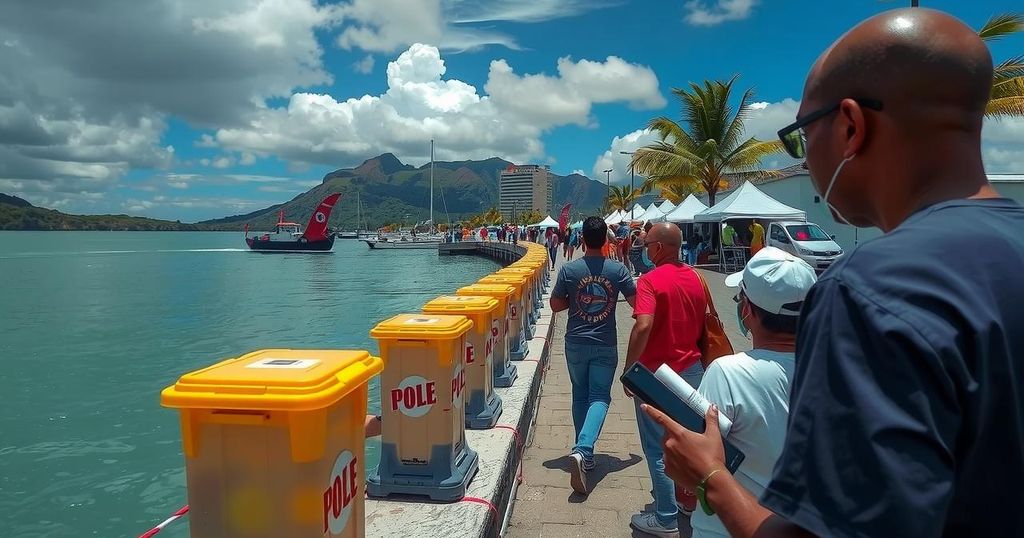Mauritius Parliamentary Election Clouded by Phone-Tapping Allegations

Mauritius held a tense parliamentary election amid a phone-tapping scandal, with police overseeing polling stations as opposition leaders raised fraud concerns. Prime Minister Pravind Jugnauth’s re-election hopes faced challenges following leaked recordings, prompting public scrutiny over civil liberties. Both major political alliances promised reforms, with voter turnout at 40% by midday, reflecting ongoing tensions in Mauritian democracy.
Mauritius held a parliamentary election on Sunday amid allegations surrounding a phone-tapping scandal that cast a shadow over the voting process. Polling stations saw police presence as opposition parties raised concerns regarding potential fraud in a nation recognized for its democratic stability. This election followed a significant agreement last month, where Britain relinquished sovereignty over the Chagos Islands, a long-standing dispute. Prime Minister Pravind Jugnauth, who sought re-election buoyed by this development, faced setbacks due to leaked recordings implicating politicians and diplomats. In the face of public outcry over the wiretapping accusations, the government initially imposed a social media ban which was later retracted. This incident raised alarms about the erosion of civil liberties in Mauritius. The contest for the National Assembly is mainly between Jugnauth’s Militant Socialist Movement and the Alliance of Change, led by former Prime Minister Navin Ramgoolam, with both parties promising reforms to improve living conditions. Ramgoolam emphasized the need for vigilance against electoral fraud during the voting process. Election Commissioner Irfan Rahman assured that measures were in place to maintain an orderly election, while voter turnout figures reached 40% by midday. A total of 891 candidates vied for 62 seats, with registered voters exceeding one million in the twelfth election since the nation gained independence in 1968. Despite economic growth, concerns regarding governance have intensified, alongside perceptions of increasing corruption within state institutions. Both Jugnauth and Ramgoolam represent established political dynasties, with governance having shifted among merely three families since independence. The emergence of the Linion Reform alliance is notable, as they challenge existing power dynamics with their calls for transparency and against nepotism. The Chagos islands accord has been a significant political victory for Jugnauth’s administration, although the long-term ramifications of geopolitical factors remain a point of concern.
Mauritius, an island nation in the Indian Ocean, is known for its strong democratic framework and peaceful political history since independence from Britain in 1968. The country’s political stability has fostered substantial economic growth, particularly in tourism, financial services, and manufacturing. However, recent episodes, such as the phone-tapping allegations and accusations of corruption, have raised alarm about the integrity of Mauritian democracy. The Chagos Islands dispute with the UK has been a focal point in recent months, indicating changing geopolitics in the region that may influence national governance.
The parliamentary election in Mauritius unfolds against a backdrop of political tension due to a phone-tapping scandal and concerns about governance. Voter vigilance is stressed by opposition leaders amidst their promises for reforms. The results from this election will not only shape the immediate political landscape but also reflect the state of democracy and civil liberties in Mauritius moving forward. The future engagement with geopolitical matters, particularly concerning the Chagos Islands, adds another layer of complexity to the nation’s governance.
Original Source: www.bryantimes.com








